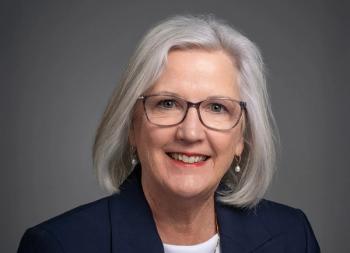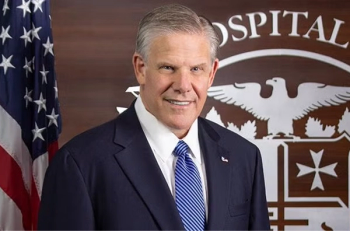
HHS investigates 2 hospitals for not providing emergency abortion care, and sends a message
Secretary Xavier Becerra says a patient in distress endured a ‘terrifying ordeal’ when the facilities refused to perform the procedure. He warned the agency will go after hospitals that violate federal law.
The federal government is serving notice when it comes to providing emergency care, including abortions, to patients in life-threatening situations.
The U.S. Department of Health and Human Services said this week that it is investigating two hospitals for failing to provide emergency care to a pregnant woman.
In a
Even though the patient was advised the pregnancy was no longer viable, Becerra said, the physicians told the patient “they could not provide her with the care that would prevent infection, hemorrhage, and potentially death because, they said, the hospital policies prohibited treatment that could be considered an abortion.”
The investigations arise from last year’s
The patient survived, but Becerra said “she never should have gone through the terrifying ordeal she experienced in the first place.”
“We want her, and every patient out there like her, to know that we will do everything we can to protect their lives and health, and to investigate and enforce the law to the fullest extent of our legal authority, in accordance with orders from the courts,” Becerra said.
The secretary sent a letter to hospitals and providers associations around the nation explaining the actions, and his willingness to investigate other hospitals for violating federal law regarding emergency abortion care.
The health department didn’t name the two hospitals, but the
‘Hospitals should take heed’
The National Women’s Law Center filed a complaint with the Centers for Medicare & Medicaid Services against Freeman Hospital West and the University of Kansas Health System on behalf of a patient, Mylissa Farmer.
The law center said both hospitals refused to provide emergency abortion care to Farmer even as she was experiencing life-threatening complications about 18 weeks into her pregnancy.
Michelle Banker, director of reproductive rights and health litigation at the National Women’s Law Center, is one of the lead attorneys representing Farmer. She said the HHS investigation is an important step to getting justice for Farmer and makes clear that what happened to her is illegal, regardless of state laws.
“Other hospitals should take heed—there are consequences for denying people emergency abortion care,” Banker said in a
Farmer experienced preterm premature rupture of membranes, the law center said. Farmer eventually traveled to an abortion clinic in Illinois, the AP reported.
In an interview with the AP, Farmer said, “It was dehumanizing. It was terrifying. It was horrible not to get the care to save your life. I felt like I was responsible to do something, to say something, to not have this happen again to another woman. It was bad enough to be so powerless.”
Bans in 14 states
Most abortions are now banned in 14 states, including Missouri, according to
In a statement sent to Chief Healthcare Executive®, the University of Kansas Health System said, “The care provided to the patient was reviewed by the hospital and found to be in accordance with hospital policy. It met the standard of care based upon the facts known at the time, and complied with all applicable law.
“There is a process with CMS for this complaint and we respect that process. The University of Kansas Health System follows federal and Kansas law in providing appropriate, stabilizing, and quality care to all of its patients, including obstetric patients.”
A request for comment from Freeman Health System in Missouri was not immediately returned Thursday.
Becerra said the hospitals’ actions violated the Emergency Medical Treatment and Labor Act. Last July, Becerra sent letters to healthcare providers outlining that
“During her visits to two different hospitals, the patient was not offered the care that her doctors determined was necessary to stabilize those emergency medical conditions -- not because of the clinical judgment of her providers, but because the hospital policies would not allow an abortion to be performed,” Becerra said in his statement this week.
The HHS secretary has said federal law supersedes state laws when it comes to providing emergency care, including abortions. However,






























